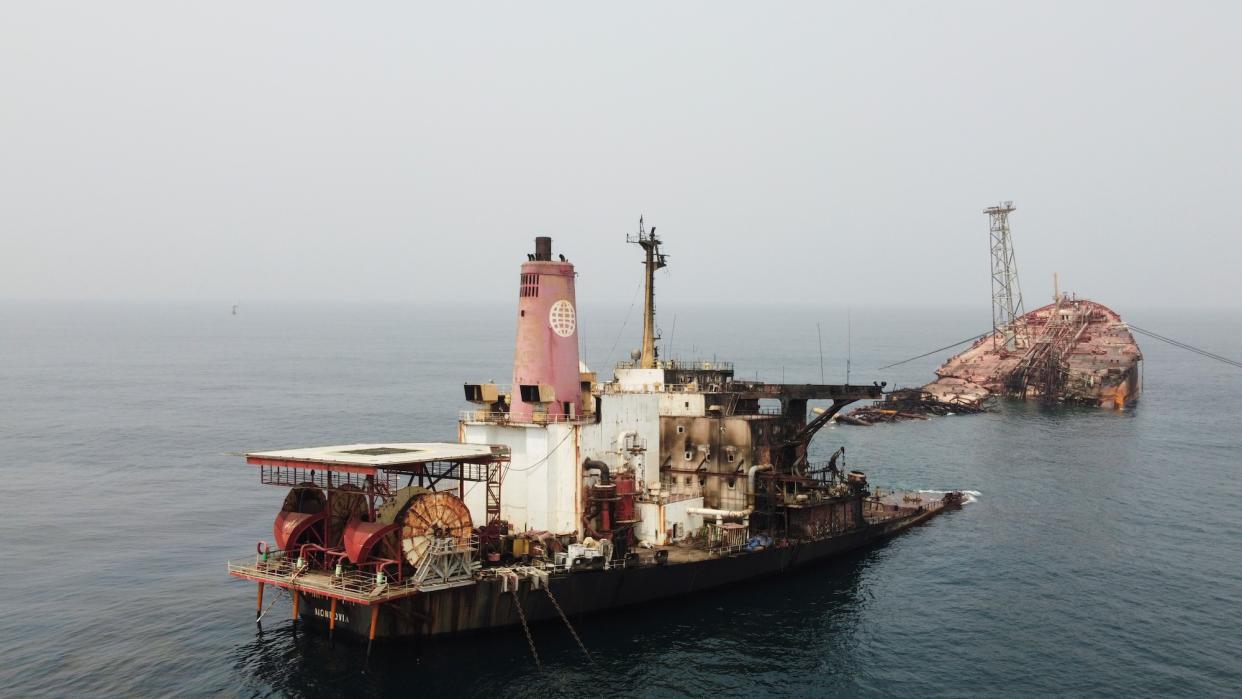Investigation finds more than 30 oil ships across the world are at risk of deadly accidents

More than 30 oil ships could be at risk of deadly accidents, including explosions, an investigation from The Associated Press found.
The investigation, published earlier this week, examined a class of ships known as floating production storage and offloading units, or FPSOs. These are vessels that store crude oil from the sea for eventual offloading, and have "become the primary method for many offshore oil and gas producing regions around the world," according to oil rig supplier MODEC.
Unlike conventional ships, though, FPSOs are typically moored in place on the ocean floor, and can stay in one location for years or even decades. This means they often carry massive quantities of oil, making them susceptible to fires and explosions. The AP investigation was spurred by the February 2022 explosion of the Trinity Spirit, an FPSO off the coast of Nigeria that killed five people and dumped 40,000 gallons of oil into the ocean when it blew up.
While Nigerian authorities haven't definitively concluded why the Trinity Spirit exploded, the AP found that the ship was "in a state of near-total disrepair." One surviving crew member told the outlet that maintenance on the 46-year-old ship "had all but stopped."
The AP's investigation found at least eight other FPSOs that have been shut down in the past decade due to safety issues or a worker's death. One ship, FSO Safer off the coast of Yemen, "could have spilled more than a million barrels of oil into the Red Sea," though the United Nations has since worked to empty it of its oil. But a number of still-operating FPSOs still carry high risks, the AP found. Many are nearly 50 years old, including another in Nigeria that was built in 1976 and is still in use, despite being "originally built to operate only through 2014," the AP reported.

